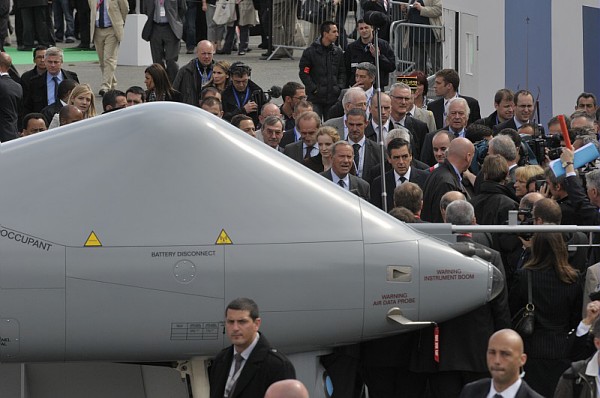Nuclear non-proliferation in the news from Parliament
(B2)While a new non-proliferation treaty (NPT) is in the making - the conference to review the NPT will be held in New York in April-May 2010 and a final preparatory meeting is taking place from May 4-15, 2009 - the European Parliament should debate (Thursday 23) and vote (Friday 24), in Strasbourg, a resolution to support a process of disarmament as ambitious as possible (download the draft report here).
Crucial period. The moment is important because the process of limiting nuclear weapons initiated in 1970 with the entry into force of the NPT Treaty has stalled over the years. For rapporteur Angelika Beer (Die Grüne), "The lack of progress by nuclear-weapon States in meeting their nuclear disarmament obligations mortgages the treaty and if this problem is not resolved as it
appropriate, some states could withdraw from the treaty and acquire a nuclear capability." But the hope of relaunching a new process is not slim. A new favorable context exists with the drafting by a group of jurists, led by Costa Rica, of an ambitious draft convention, and the new international order led by a new American administration, less unfavorable to nuclear disarmament than the previous one. Thus, it is pointed out in the European Parliament, "there is a good chance that a comprehensive nuclear disarmament program will be welcomed by the 2009 NPT Preparatory Committee and adopted at the 2010 NPT Review Conference."
The disintegration of the NPT Treaty by the new nuclear states. Since the entry into force of the Treaty (NPT), theIndia, Israel and Pakistan have not signed or ratified it and have acquired nuclear weapons, explains a note from the European Parliament. India and Pakistan argue that the NPT is discriminatory in that it prohibits all state parties except the P5 group (China, France, Russia, UK and US) , to possess nuclear weapons and that it requires them, with the exception of the P5, to accept guarantees with regard to their nuclear installations. There North Korea had ratified the treaty but announced its withdrawal in 2003.Iran is currently building uranium enrichment facilities that would provide it with nuclear weapons should the government of that country decide to withdraw from the NPT and denounce the current safeguards that have been established for these nuclear facilities. Several of these countries (India, Pakistan and North Korea) support a comprehensive, non-discriminatory program to eliminate nuclear weapons through a nuclear weapons convention.
The ambitious project for a new Convention. This new international treaty would be more ambitious than the previous ones. It would prohibit the development, testing, production, stockpiling, transfer, use or threat of use of nuclear weapons and ensure their elimination. In form, it would be similar to existing conventions that prohibit other categories of weapons, such as biological weapons, chemical weapons, anti-personnel mines and cluster munitions. It would oblige countries possessing nuclear weapons to eliminate them in successive stages: lifting of the state of alert, withdrawal of deployed weapons, withdrawal of nuclear warheads from their delivery systems, neutralization of warheads by the withdrawal of charges and placement of materials fissile material under United Nations control. This convention would prohibit not only nuclear weapons, but also the production of fissile materials that can be used to manufacture nuclear weapons, namely highly enriched uranium and separated plutonium.
Key point of the device, a control agency. Fundamental point of the device, this convention would establish an agency responsible for ensuring compliance with the provisions of the treaty by the States parties. The agency would receive progress reports from nuclear-weapon states, inspect nuclear facilities, gather information through satellite photography and remote sensing, and monitor the production and transfer of materials that could be used in the manufacture of nuclear weapons.
(NGV)
